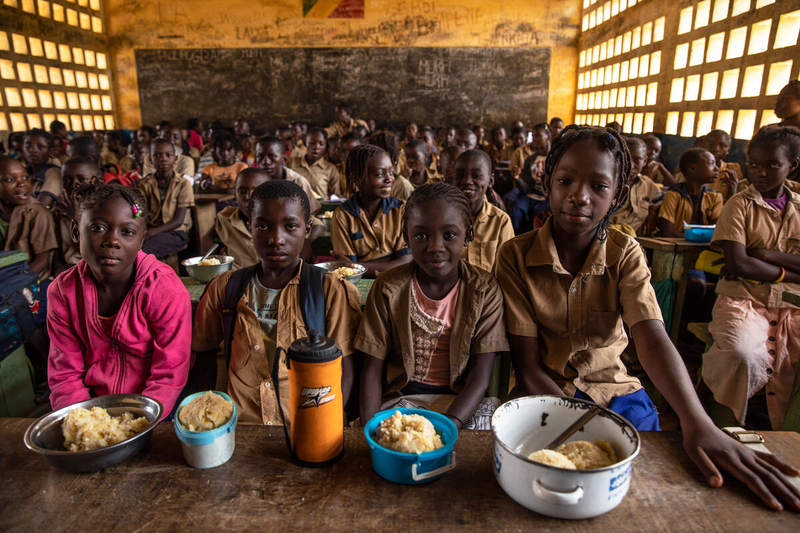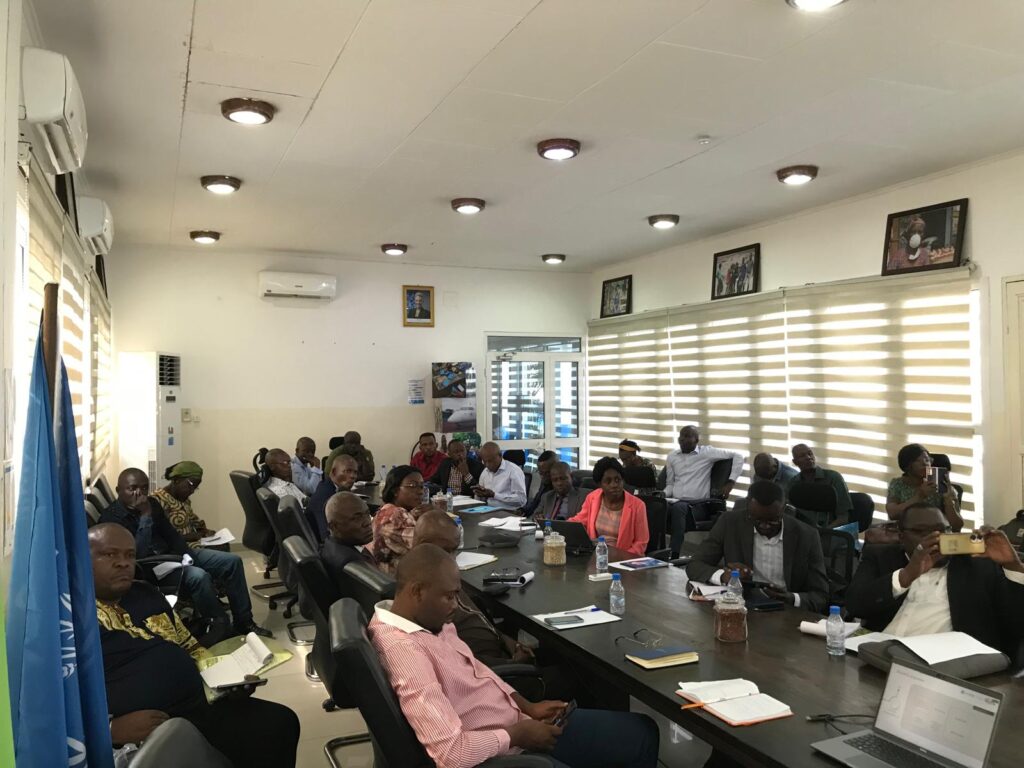
On September 19, representatives from the Brazilian government and the Republic of Congo met in a workshop organized by the “Seeds for Tomorrow” project, funded by the IBSA Fund, to discuss the connection between family farming and school feeding. This workshop was the second in a series of three online events scheduled this year as part of the project. The first workshop, held on August 29, focused on institutions and public policies to strengthen family farmers.” The second workshop yesterday focused on local purchases linked to the school feeding programme. The workshop aimed to share Brazil’s experiences and best practices, such as the National School Feeding Program (PNAE), which since 2009 has prioritized purchasing food from family farmers to supply schools.
During the second workshop’s opening, Madame Feliciti Moungange, Director of School Feeding in the Republic of Congo, highlighted how the establishment of school canteens in the early 2000s was successful in bringing children back to school after armed conflicts and improving access to education in rural areas. It also became a means of promoting equality and inclusion in the country, increasing literacy rates among marginalized communities.
Yesterday’s workshop covered PNAE implementation, challenges, and lessons in purchasing food from family farms for school feeding, as well as potential ways to transfer technical knowledge to the Republic of Congo’s context.
 © WFP/Celia Boumpoutou
© WFP/Celia Boumpoutou
The first panel featured presentations by representatives from the National Fund for Educational Development (FNDE). Daniel Henrique Bandoni, Coordinator of Food and Nutrition Security at the General Coordination of the National School Feeding Program (CGPAE), spoke about the history and challenges of establishing PNAE, while Marcia Sartori, Legal Technical Advisor to the Program, discussed the technical and logistical aspects of the policy’s operation in the country.
During the meeting, participants highlighted the experience of local family farmers in implementing the program, such as the process for identifying schools and employing rural extension workers to train producers. Ana Luiza Resende Oliveira, Technical Advisor to the Presidency at EMATER-MG, emphasized how PNAE also aims to promote the well-being and development of the families involved in the work.
About the Project
Launched in June 2023, the “Seeds for Tomorrow” project is facilitated by the Center of Excellence Against Hunger (WFP) in Brazil and WFP Congo, in partnership with the Government of the Republic of Congo (MAEP, MEPPSA), the Government of Brazil (ABC, FNDE, and MDA), and the United Nations Office for South-South Cooperation (UNOSSC). The project is funded by the India, Brazil and South Africa Facility for Poverty and Hunger Alleviation (IBSA Fund).
The project aims to share Brazil’s knowledge and innovations in connecting family farming with school feeding so that the Republic of Congo can improve on food security, education, and farmers’ access to local markets.
Next Event
The third and final workshop on monitoring and evaluating the school feeding systems will take place in November 2024 on.




